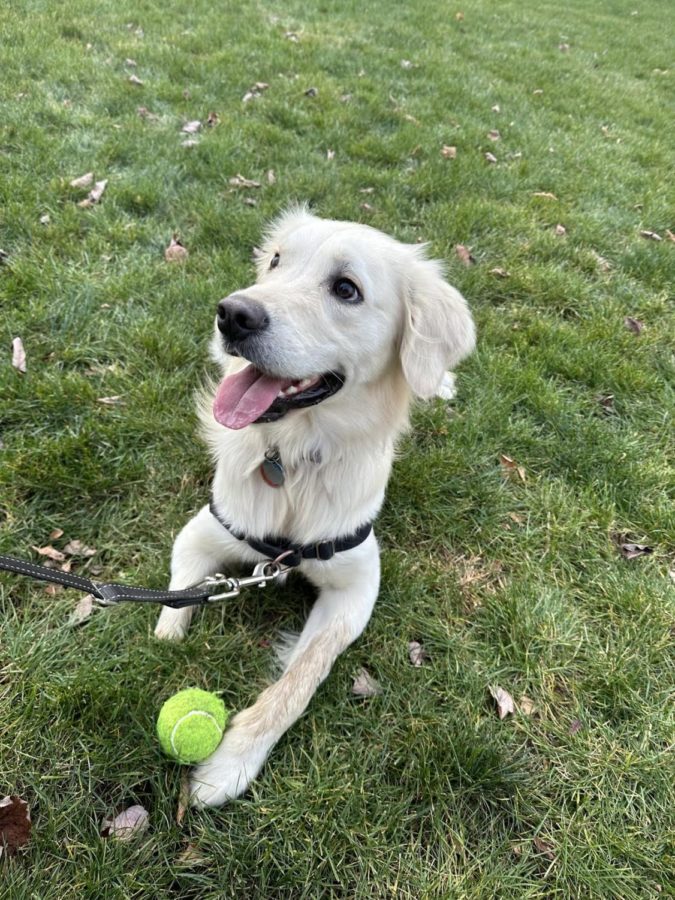Students work to design affordable prosthetics for dog
February 10, 2023
Three Bucknell engineering students have taken on the research of creating a prosthetic leg for a golden retriever dog named Doug.
These students are biomedical engineering seniors Emma O’Shea ’23, Grace Adams ’23 and senior mechanical engineer Will Carcieri ’23. All three students are members of the university’s prosthetics club, which 3D prints upper-limb prosthetics for local clients.
When the students first met Doug, they watched how he ran and took some measurements so they could begin building and constructing the prosthetic.
This research began when Mary Ann Stanton ’89, Director of Development, Strategic Philanthropy Programs, Education & CFR, decided to take Doug into her home when his former family could no longer provide the full care he needed. Doug’s veterinarian eventually recommended the idea of a prosthetic because he has an increased chance of developing severe arthritis without one.
The three students have conducted in-depth research the past two semesters on Doug’s needs and animal prosthetics. This included building prototypes and models as well as using the 3D printer. Carcieri explained that their second step of the research was to see if they could find any similarities between existing solutions and Doug’s situation.
During their research, the group found a few existing prosthetics that seemed to be similar to Doug’s needs and decided to design their prosthetics based on what they found. Once the students completed their prototypes, they brought them to Doug for him to try on.
“The best part so far has just been working with Doug,” Carcieri said. “He is full of energy and so happy despite the challenges he faces without a limb. It is very rewarding to know this prosthetic will help improve his happiness in the long run.”
The students found that one of the challenges with prosthetics is that they can be expensive and inaccessible to many people. O’Shea explained that their group found that animals do not typically adjust well to prosthetics because they are able to adapt without them and we cannot communicate to tell them why they are important.
“If we can make something low-cost and comfortable, this could provide an opportunity for dog owners to have a less expensive option, especially if the dog won’t like the prosthetic either way,” O’Shea said. “This can also continue into a great learning opportunity for other Bucknell engineering students.”





















